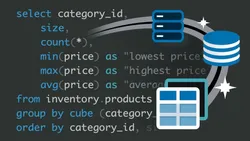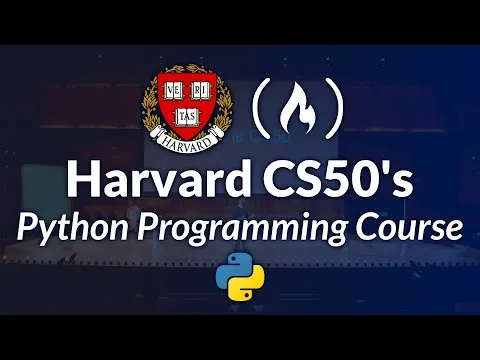
Mastering Doctrine Relationships in Symfony 3 
Gain an introduction to Mastering Doctrine Relationships in Symfony 3 ▼
ADVERTISEMENT
Course Feature
![]() Cost:
Cost:
Paid
![]() Provider:
Provider:
SymfonyCasts
![]() Certificate:
Certificate:
Paid Certification
![]() Language:
Language:
English
![]() Start Date:
Start Date:
On-Demand
Course Overview
❗The content presented here is sourced directly from SymfonyCasts platform. For comprehensive course details, including enrollment information, simply click on the 'Go to class' link on our website.
Updated in [May 19th, 2023]
This course, Mastering Doctrine Relationships in Symfony 3, will help you understand and master Doctrine relationships. It will cover the basics of setting up relationships, as well as more advanced topics like querying with joins and using the ArrayCollection.
The course will start with an introduction to Doctrine relationships, and then move on to the basics of setting up ManyToOne and OneToMany relationships. We'll also cover the pitfalls of owning versus inverse sides of a relation.
Next, we'll move on to more advanced topics like querying with joins and using the ArrayCollection. We'll also cover some magic with the "Param Conversion" feature.
At the end of the course, you'll have a solid understanding of Doctrine relationships and be able to confidently set up and use them in your Symfony 3 projects.
This course is designed for developers who are already familiar with Symfony 3 and Doctrine. It is assumed that you have already set up Doctrine and have a basic understanding of entities, queries, migrations and fixtures.
[Applications]
It is suggested that those who have completed this course apply their knowledge of Doctrine relationships in Symfony 3 by creating complex data structures, using ManyToOne relationships (associations), understanding the OneToMany side of a relation, avoiding the pitfalls of owning versus inverse sides of a relation, utilizing the ArrayCollection, querying with Joins, and performing magic with the "Param Conversion".
[Career Paths]
1. Database Administrator: Database Administrators are responsible for the installation, configuration, maintenance, and security of databases. They must ensure that the databases are running efficiently and securely, and that they are backed up regularly. They must also be able to troubleshoot any issues that arise. Developing trends for this job position include the use of cloud-based databases, automation, and the use of artificial intelligence to optimize database performance.
2. Data Analyst: Data Analysts are responsible for analyzing data and providing insights to help inform business decisions. They must be able to interpret data, identify trends, and develop strategies to improve business operations. Developing trends for this job position include the use of machine learning and artificial intelligence to automate data analysis, as well as the use of big data to gain deeper insights.
3. Software Developer: Software Developers are responsible for designing, developing, and testing software applications. They must be able to understand user requirements and develop software that meets those requirements. Developing trends for this job position include the use of agile development methodologies, the use of cloud-based technologies, and the use of artificial intelligence to automate software development.
4. Database Developer: Database Developers are responsible for designing, developing, and maintaining databases. They must be able to understand user requirements and develop databases that meet those requirements. Developing trends for this job position include the use of NoSQL databases, the use of cloud-based technologies, and the use of artificial intelligence to automate database development.
[Education Paths]
1. Bachelor of Science in Computer Science: This degree path provides students with a comprehensive understanding of computer science fundamentals, such as programming, software engineering, and computer architecture. Students will also learn about the latest technologies and trends in the field, such as artificial intelligence, machine learning, and data science.
2. Master of Science in Information Technology: This degree path provides students with a deeper understanding of the principles and practices of information technology. Students will learn about topics such as network security, software development, database management, and web development. They will also gain experience in the latest technologies and trends, such as cloud computing, big data, and mobile application development.
3. Doctor of Philosophy in Computer Science: This degree path provides students with an advanced understanding of computer science principles and research methods. Students will learn about topics such as algorithms, artificial intelligence, computer graphics, and computer networks. They will also gain experience in the latest technologies and trends, such as machine learning, natural language processing, and robotics.
Developing trends in these degree paths include the use of artificial intelligence, machine learning, and data science in computer science, as well as cloud computing, big data, and mobile application development in information technology. Additionally, the use of algorithms, natural language processing, and robotics is becoming increasingly important in computer science research.
Course Provider

Provider SymfonyCasts's Stats at AZClass
Discussion and Reviews
0.0 (Based on 0 reviews)
Explore Similar Online Courses

Microsoft Excel - 40 Exercises for beginners Learn by doing

Online Course Marketing Blueprint

RDBMS PostgreSQL

Intro To PostgreSQL Databases With PgAdmin For Beginners

PostgreSQL: Client Applications

Mastering SQL using Postgresql

Database Design and Basic SQL in PostgreSQL

PostgreSQL: Advanced Queries

Spatial SQL with Postgres : A language for geographers

Learn SQL Using PostgreSQL: From Zero to Hero

PostgreSQL Essential Training

Harvard CS50's Introduction to Programming with Python : Full University Course
 Related Categories
Related Categories
 Popular Providers
Popular Providers
Quiz
 Submitted Sucessfully
Submitted Sucessfully
1. What type of relationships are covered in this course?
2. What type of data structure can be built with Doctrine relations?
3. What type of side of a relation can be owned?
4. What is the downfall of owning versus inverse sides of a relation?
Correct Answer: It can lead to data inconsistency.


Start your review of Mastering Doctrine Relationships in Symfony 3